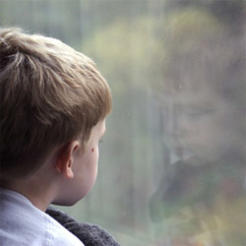When considering the importance of the gamut of issues that charities deal with, the public have highlighted concerns around a safe and healthy childhood as the most important, according to data released today.
Five of what 1,000 people surveyed have judged as the most important ten issues that charities address were child-related, according to figures released today by nfpSynergy. The sexual exploitation of children and the UK’s failure to change the offending behaviour of children, thus minimising future crime rates, came in as the two top concerns listed by the public.
Survey respondents were asked to rank more than 60 issues tackled by charities by how concerned they felt on the topic, and also listed war and conflict, rape as a weapon of war and issues related to international development in their top ten concerns. Dementia came in as the tenth most important issue addressed by the work of charities.
Alcohol and hearing-impairment charities might lose some heart by looking at the other end of the ‘concern’ spectrum. nfpSynergy’s report found that issues related to an individual’s own, and peer group, drinking were low on the public’s list of concerns, accounting for three of the bottom four issues that mattered to the respondents. Finding a cure for deafness, the difficulties faced by the deaf and hard of hearing and the importance of protecting ones own hearing also ranked in the bottom ten.
nfpSynergy’s Joe Saxton suggested that alcohol abuse and sensory impairment charities might have to be more aggressive and imaginative in the marketing of their cause to combat low public interest.
He added that the concern regarding children’s issues was not particularly surprising. “This concern, and resulting support, is doubtless already reflected by the existence of very large voluntary organisations, from Barnardo’s to NSPCC, already active in this field; and perhaps is part explained by a public seemingly engaged in worrying about children and young people from a variety of angles,” he said.
Public most concerned with child issues, finds survey
26 Nov 2010
News
When considering the importance of the gamut of issues that charities deal with, the public have highlighted concerns around a safe and healthy childhood as the most important, according to data released today.









